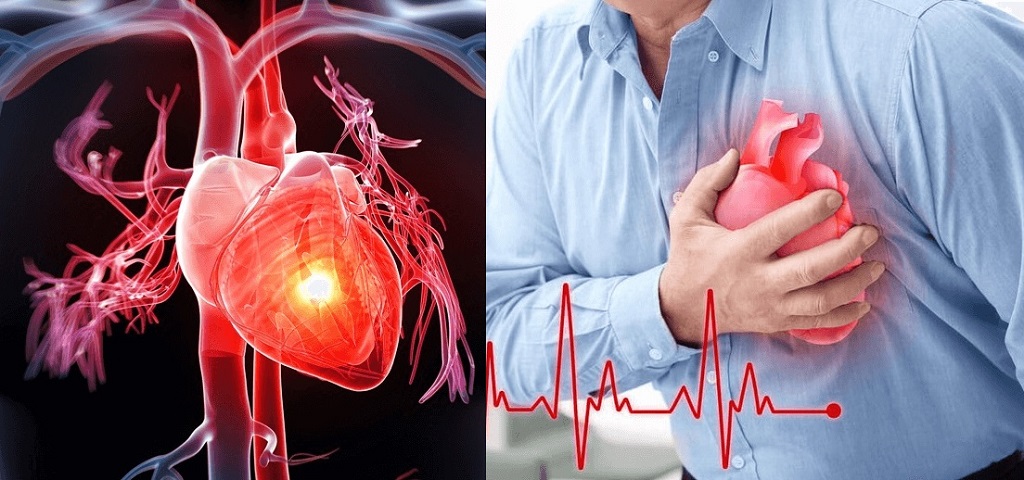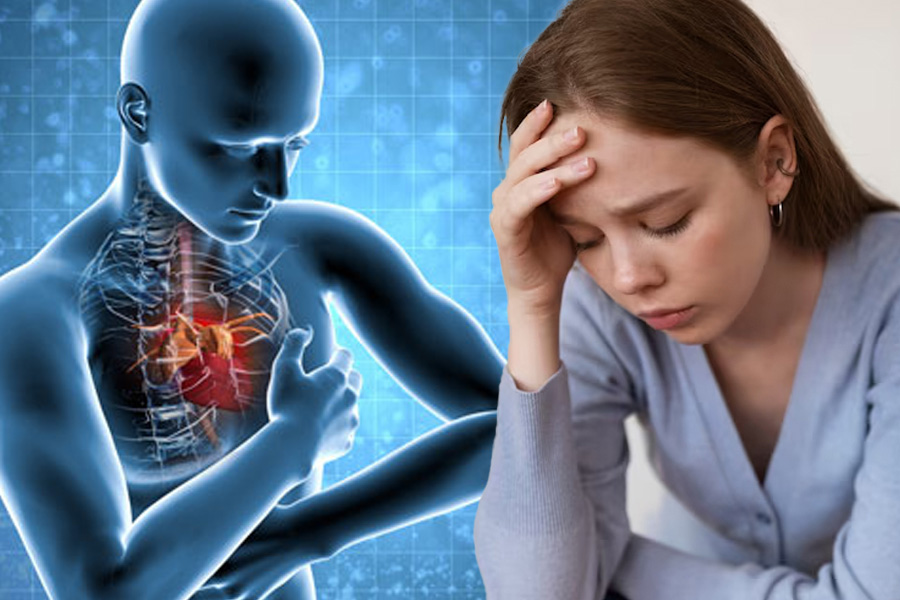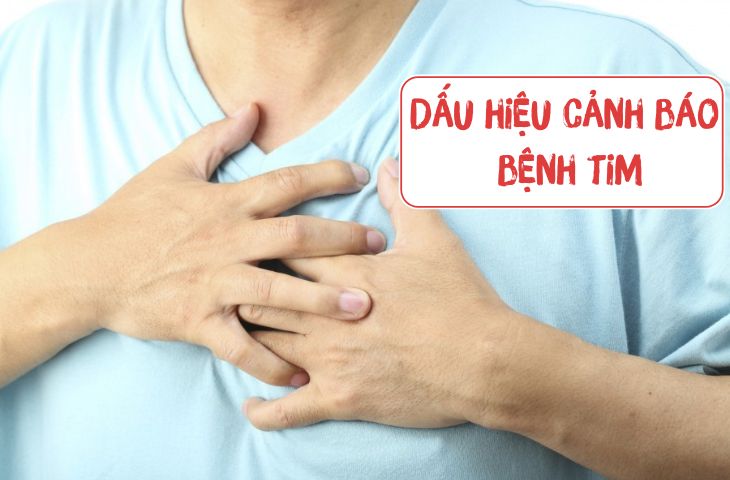Behind seemingly harmless chest pains, there are a series of serious consequences that heart disease brings, even turning every minute into a life-and-death risk. Therefore, clearly recognizing the harmful effects of cardiovascular disease will be the first step to protecting yourself.

Top 6 harmful effects of cardiovascular disease that the elderly often suffer from
Many studies have shown that cardiovascular disease is one of the leading causes of death in the world. This has been statistically shown in Vietnam, in 100 deaths, nearly 80% are due to non-communicable diseases, the remaining mortality rate of up to 31% comes from cardiovascular disease. This shows how dangerous cardiovascular disease is. Let's continue to learn about the following typical effects.
Loss of sleep and appetite from sudden heart attacks
This is the fear of many people who unfortunately have cardiovascular disease, causing part of the heart muscle to be damaged or die due to lack of blood and oxygen, leading to heart attacks (myocardial infarction) that often come suddenly and unexpectedly, making it difficult for the patient to turn around. Accompanied by symptoms of shortness of breath, severe chest pain or dizziness, nausea.

When the pain comes, the patient may feel like there is a weight pressing on the chest, then spreading down to the arms, neck, jaw or back.
If not treated promptly, it can lead to serious consequences that cause irreversible damage to heart muscle cells, leading to heart failure, reducing the heart's ability to pump blood. This creates a vicious cycle and is especially dangerous to life when the body no longer has enough oxygen and nutrients to maintain life and normal organ function.
The harmful effects of cardiovascular disease increase the risk of stroke
Once the heart is not working effectively, it means that the heart is no longer able to pump blood, causing blood to not reach the brain, causing brain cells to lack oxygen and nutrients, leading to a stroke (cerebrovascular accident) - a serious consequence of cardiovascular disease. 
Accordingly, stroke can lead to disability, causing the patient to lose the ability to communicate, and even death if not treated promptly. After a stroke, the patient also has to face long-term consequences such as hemiplegia, memory loss, or reduced ability to think and learn.
Cardiovascular disease causes serious consequences from heart failure
One of the most serious and long-term cardiovascular diseases is heart failure. This is a condition in which the heart cannot pump enough blood to the body's organs.
The initial symptoms of the disease may be just normal fatigue, but later on, the symptoms of the disease become more obvious such as shortness of breath, swelling of the hands and feet, reduced mobility with increasingly serious nature, affecting all activities of life such as difficulty in performing daily tasks due to not being able to walk or work or participate in social activities.

In advanced heart failure, patients may need to be hospitalized frequently for treatment, which further reduces their quality of life. Notably, this disease also increases the risk of infection and even death if not treated properly.
Increased risk of other chronic diseases
Not only directly affecting the heart, cardiovascular disease also creates conditions for other diseases to continuously find their way into the body such as diabetes, blood pressure, obesity, kidney disease, stroke, etc., unintentionally creating a dangerous cycle, contributing to increasing the severity of the remaining diseases.

Take blood pressure, for example. If left uncontrolled, high blood pressure can damage the blood vessels in the body, increasing the risk of heart disease and leading to stroke. Conversely, due to changes in metabolism, affecting the body's ability to regulate blood sugar, cardiovascular disease also increases the risk of diabetes.
Quality of life is significantly reduced
Not only does it cause physical damage, cardiovascular disease also has a profound impact on the quality of life. Because it is difficult for anyone who suffers from this disease to avoid anxiety and fear, especially when facing the risk of recurrence of heart attacks, strokes or other dangerous complications. From there, the quality of life will be significantly reduced, the patient will lose the ability to work or participate in recreational activities and of course, it will be difficult to maintain social relationships.

This affects both mental health and the patient's family and relatives.
Cardiovascular disease affects the economy
In addition to the patient's reduced ability to work and productivity leading to loss of income, cardiovascular disease also has a significant impact on the personal economy and is a burden on social health. Specifically, when suffering from cardiovascular disease, in addition to having to pay for medicine and medical expenses, patients also have to regularly pay quite a large amount of fees throughout the treatment process. When the disease persists with unpredictable complications, the health system also has to invest a lot of resources for treatment.
How to prevent the harmful effects of cardiovascular disease
To minimize the harmful effects of the disease, prevention of cardiovascular disease is the most effective way. Accordingly, the first thing to pay attention to is a reasonable diet, say no to alcohol, tobacco, and exercise regularly. If you have cardiovascular disease, you need to follow the doctor's treatment regimen and increase your health check-ups to detect dangerous complications early.
These are important measures in preventing cardiovascular disease. However, to have a scientific standard care method, to help maintain health and prevent disease to the maximum, it is best to seek professional care and nursing services like at Hio Care.

An address for elderly care that many families trust because of the thorough care process from mental to physical and nutritional care from professional nurses with degrees and practice certificates, ensuring close monitoring of health indicators and updating information to family members. This will help family members reduce anxiety and feel secure about their work.
In particular, the cost at Hio care is also one of the plus points that many families are satisfied with thanks to the diverse care packages by day, week and month, helping customers optimize up to 35% of normal costs.
It can be seen that the harmful effects of cardiovascular disease are very large, deeply affecting all aspects of the patient's life. Therefore, prevention and proper treatment of cardiovascular disease is extremely important. Take the initiative to protect your heart now to avoid unfortunate consequences in the future.




